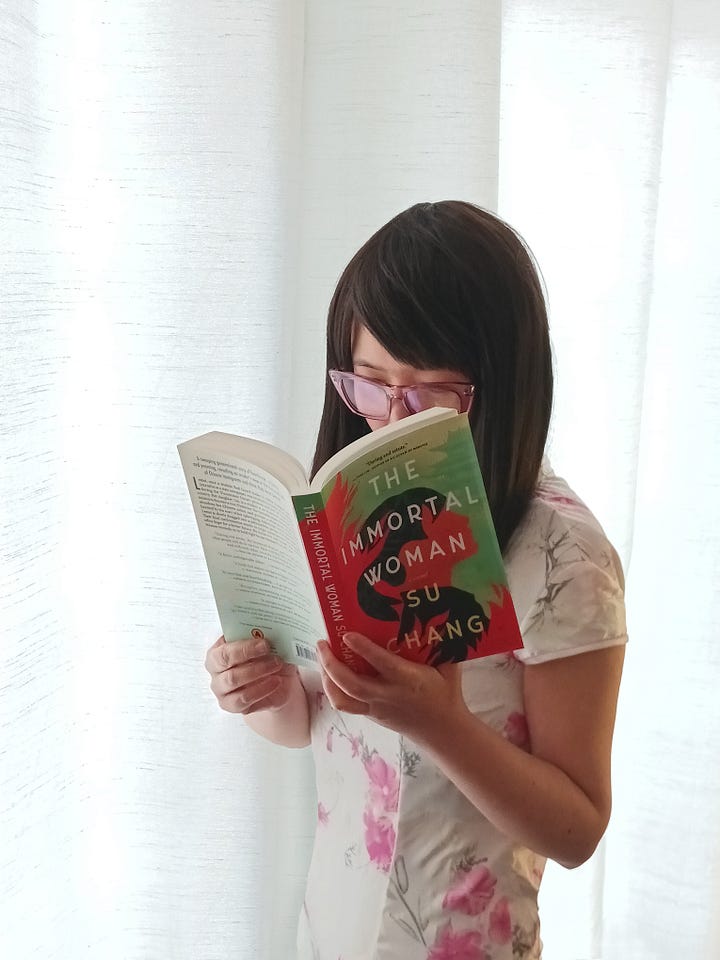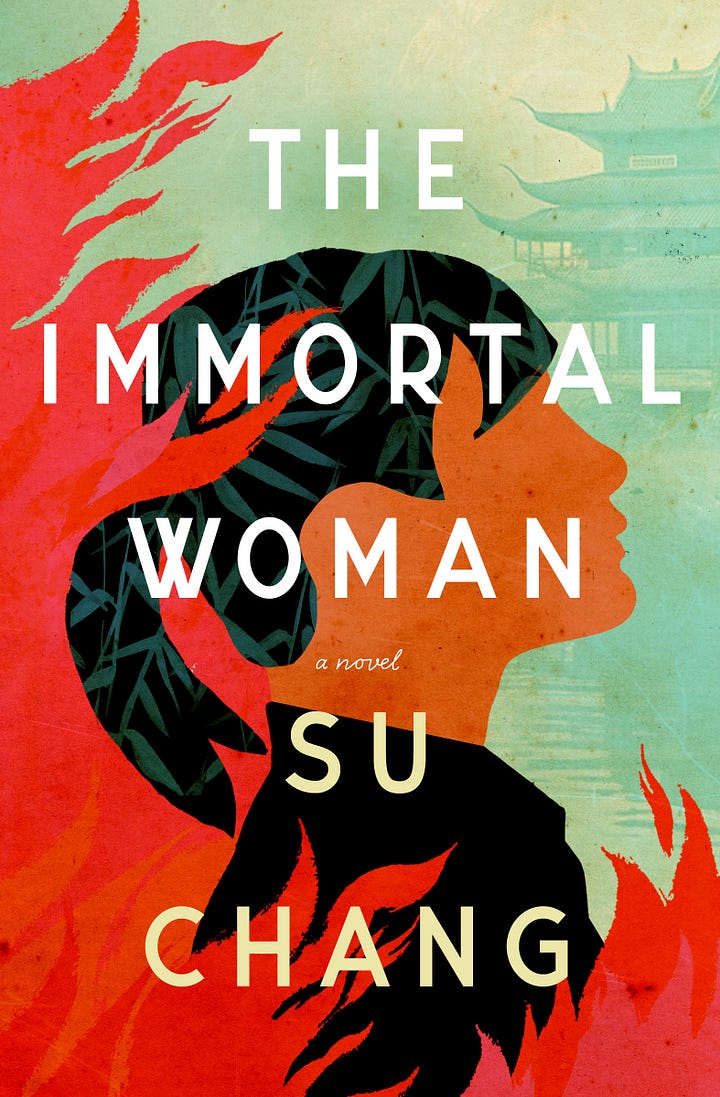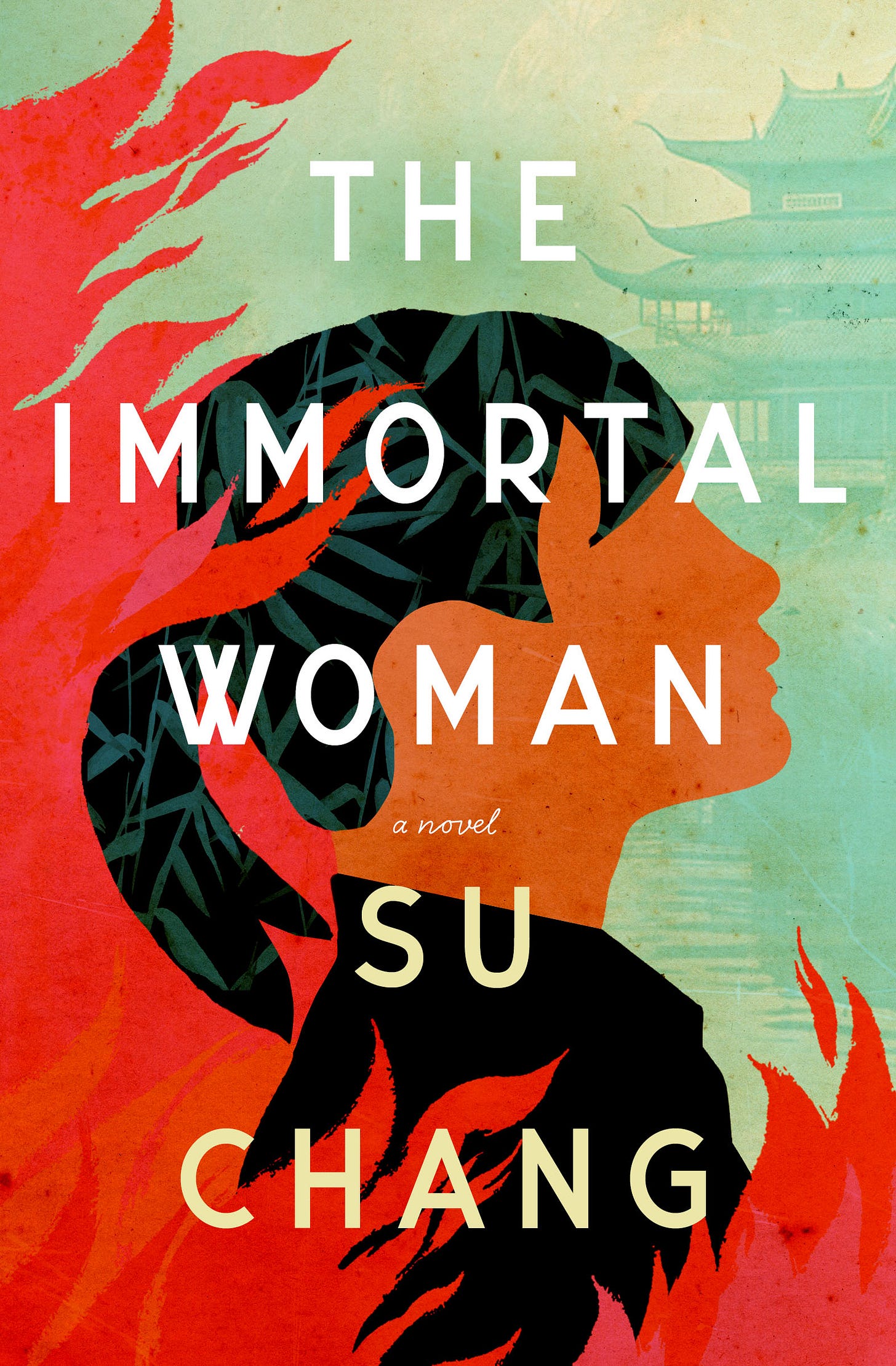SU CHANG is a Chinese Canadian writer. Born and raised in Shanghai, she is the daughter of a former (reluctant) Red Guard leader. Her fiction has been recognized in Prairie Fire’s Short Fiction Contest, the Canadian Authors Association (Toronto) National Writing Contest, the ILS/Fence Fiction Contest, and the Masters Review’s Novel Excerpt Contest, among others.
My First Book: The Immortal Woman
A sweeping generational story of heartbreak, resilience, and yearning, revealing an insider's view of the fractured lives of Chinese immigrants and those they leave behind.
Paperback: 384 pages
Publisher: House of Anansi Press
Date Published: March 4, 2025
Subjects: Fiction / Asian American & Pacific Islander / Cultural Heritage / Family Life
"Defying limits with triumph and aplomb ... Chang's lyrical, spinning and dizzying prose creates a vivid sense of the ever-shifting ground beneath her characters' feet." - 49th Shelf


How did you become a writer?
I was an avid reader growing up in China. I wrote and published my first story in a national youth magazine in grade four. But after immigrating to North America in my 20s, I didn’t have the courage to write fiction in a second language for more than a decade. But I kept reading, in English, and at the back of my head I always knew I had lots of stories to tell and I’d take up the pen again someday. After a while, I took a few creative writing courses and tried my hand at writing short prose and plays, getting small awards from time to time to make me believe I wasn’t entirely chasing a pipe dream. During Covid, I hunkered down to write the first draft of The Immortal Woman. I then enrolled in Humber School for Writers correspondence program to revise my manuscript. My singular goal wasn’t so much to publish (I understood how competitive publishing is), but to do this story justice and to make myself proud. Along the way, I met generous and encouraging mentors who urged me to seek publication. I went through about twenty drafts before a literary agent said yes. So many words and subplots were left on the cutting floor, but that was an invaluable learning process.
What is your book about?
The Immortal Woman traces the tumultuous lives of a Chinese mother, haunted by her Red Guard past and the Tiananmen Square protests, and her daughter, who seeks to erase her Chinese identity as an immigrant in America. Their harrowing journey through internalized racism and the quest for belonging culminates in a tragic confrontation, offering a poignant glimpse into the fractured lives of Chinese immigrants navigating between assimilation and nationalism.
This is your first book - why did you need to tell this story?
When I was growing up in China during the 80s and 90s, I was perpetually puzzled by the adults around me, whose daily arguments unveiled hidden ire and pain, old grudges from a tumultuous time. But I could hardly trace that chaotic time in my history books, and gradually, I came to see myself as belonging to a generation with no history. It was only after I immigrated to North America that I began to gain access to the tabooed past of my birth country, to start making sense of the incongruency that had haunted my life. Over the years, as I labored to find footing in my adopted country, I also spent endless evenings reading books and watching documentaries to make up for the missing history lessons of my youth. I started to see the connection between the political trauma endured by my parents and grandparents’ generations and the challenges and conundrums faced by my own. The ongoing collective amnesia has taken away my humanity, and I write to reclaim it.
What was your playlist when writing this book (either literally or thematically?)
I don’t listen to music at all when I am writing. I like to hear the words in my head and music is too much of a distraction. But if I have to imagine a soundscape for my novel, it would be a lot of Astor Piazzolla, with some interludes of Rachmaninoff and Yellow River Cantata.
What do you hope readers will take away after reading The Immortal Woman?
I have several aspirations. I hope my book can inject nuanced perspectives into the discourse about China. I hope to shed light on a unique and under-examined source of colonial mentality and internalized racism: unresolved political trauma. Moreover, new Chinese immigrants in North America often live in a constant state of tension. On one hand, many of them carry trauma from their country of origin, often making them skeptics, if not downright critics, of China. But to be constantly critical of one’s country of origin erodes one’s sense of identity and pride, and eventually becomes its own source of pain. On the other hand, it can be challenging to find belonging in their adopted country, due to their status as visible minorities from a perceived “enemy state,” according to the Cold War mentality displayed by the Western government and media. Their conflictual feelings for their country of birth and the suspicion of “dual loyalties” can take an unrelenting psychological toll. I hope my book can provide a narrative framework to discuss the future of multiculturalism in our increasingly divided world.
What do you know now that your first book has been published that you wish you knew when you first had the inspiration to write it?
Publishing is a long game, and writing is about (sometimes endless) rewriting.
What’s next for you?
In the earlier drafts of The Immortal Woman, Lemei’s parents, first-generation Communist revolutionaries who came of age during the Sino-Japanese War (WWII), were featured more prominently. I was told the book was too long for a debut so I took out the plotline centering on that generation. I am still intensely interested in that earlier generation and I’m slowly working to wrap their stories into a new mystery.
The Immortal Woman by Su Chang
Lemei, once a student Red Guard leader in 1960s Shanghai and a journalist at a state newspaper, was involved in a brutal act of violence during the Tiananmen Square protests and lost all hope for her country. Her daughter, Lin, is a student at an American university on a mission to become a true Westerner. She tirelessly erases her birth identity, abandons her Chinese suitor, and pursues a white lover, all the while haunted by the scars of her upbringing. Following China's meteoric rise, Lemei is slowly dragged into a nationalistic perspective that stuns Lin. Their final confrontation results in tragic consequences, but ultimately, offers hope for a better future. By turns wry and lyrical, The Immortal Woman reminds us to hold tight to our humanity at any cost.


